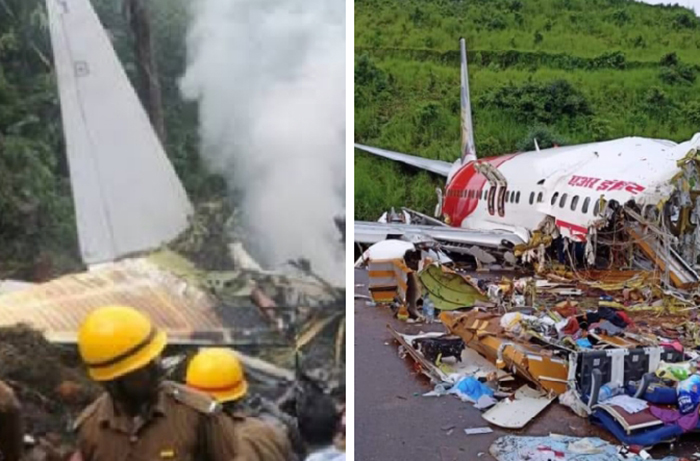coastaldigest.com news network
August 8,2020

Mangaluru, Aug 8: As visuals of the Air India Express flight crash at Kozhikode international airport emerge, one cannot help but be reminded of an eerily similar and unfortunate accident that occurred a decade ago. The August 7, 2020 tragedy brought back memories of the 2010 crash.
It was on May 22, 2010 that an Air India Express Boeing 737-800 flight from Dubai to Mangaluru over shot the runway while landing at Bajpe airport and fell into a cliff. Of the 160 passengers and 6 crew members on board, 158 were killed (all crew members and 152 passengers) and only 8 survived.
Even back then, the plane had split into two. The crash has been termed as one of India's worst aviation disasters.
The final conversations between Air traffic control (ATC) and the pilot prior to the landing showed no indication of any distress.
Like the Mangaluru accident, Karipur crash too happened when the flight was attempting to land.
The captain of the aircraft which crashed at Mangaluru, Z Glucia, was an experienced pilot with 10,000 hours of flying experience and had 19 landings at the Mangalore airport. Co-pilot S S Ahluwalia, with 3,000 hours of flying experience had as many as 66 landings at this airport. Both the pilot and co-pilot were among the victims.
An investigation into the accident later found that the cause of the accident was the captain’s failure to discontinue an ‘unstabilised approach’ and his persistence to continue with the landing, despite three calls from the First Officer to ‘go-around’.






Comments
Jihadists can do anything .
Give them AK-47 instead of holding normal Stick , High Alert Should be Mechine Gun with us.....................
Add new comment